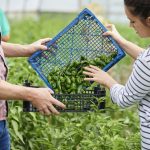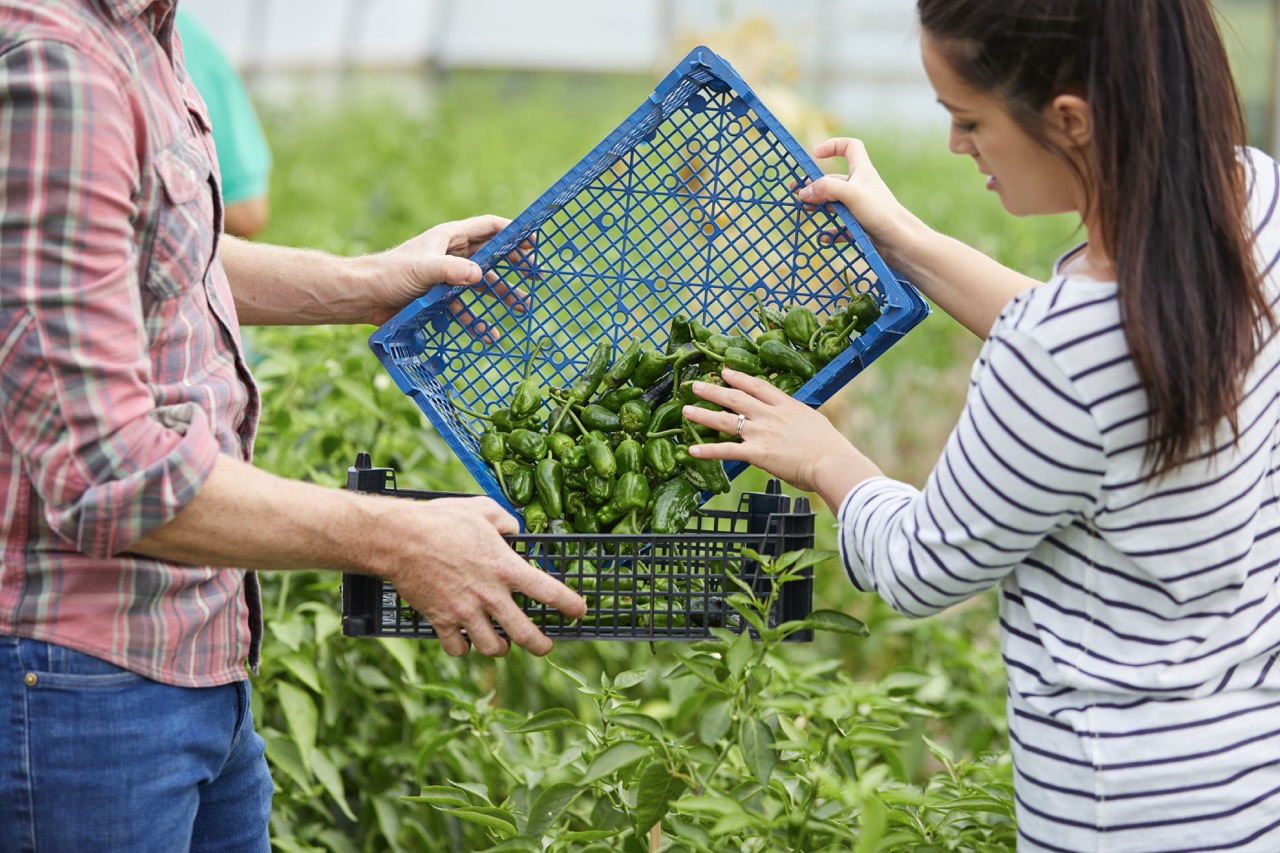The agricultural landscape is witnessing a significant transformation as more farmers are embracing organic practices. This shift is not merely a trend; it reflects a broader societal movement toward sustainability and health-consciousness. As environmental concerns grow and consumer preferences evolve, the adoption of organic farming methods is becoming increasingly viable and attractive for farmers across the globe. In this article, we explore the driving forces behind this shift, examining the environmental imperatives, consumer demand, and economic advantages that are prompting farmers to pivot toward organic farming.
The Rise of Organic Farming: A Shift in Agricultural Practices
In recent years, organic farming has transitioned from a niche market to a mainstream agricultural practice. The Organic Foods Production Act of 1990 in the United States laid the foundation for standardized organic farming practices, which has contributed significantly to its growth. More farmers are now participating in organic certification programs, motivated not only by the potential for higher profits but also by a desire to contribute positively to their communities and the environment. The practice promotes biodiversity, soil health, and sustainable farming techniques that are increasingly recognized as vital in combating climate change.
Moreover, the rise of technology and knowledge sharing through social media platforms has enabled farmers to learn from each other and adopt organic practices more easily. Online forums and workshops provide invaluable resources for transitioning farmers, allowing them to share successful strategies and overcome common challenges. As techniques become more refined and accessible, the operational barriers that once deterred farmers from switching to organic methods are gradually diminishing.
Lastly, government incentives and subsidies aimed at promoting sustainable farming practices play a crucial role in this shift. Many governments are recognizing the environmental benefits of organic farming and are providing financial assistance to farmers willing to adopt these practices. This support can mitigate the initial costs associated with transitioning to organic farming, making it a more feasible option for many farmers who are considering the switch.
Environmental Concerns Drive Farmers Toward Organic Methods
A growing awareness of environmental issues has prompted farmers to reconsider their agricultural practices. Conventional farming methods, often reliant on synthetic fertilizers and pesticides, have been linked to soil degradation, water pollution, and a decline in biodiversity. Organic farming, which prioritizes natural inputs and sustainable practices, offers a solution to these pressing ecological challenges. Farmers are increasingly motivated by the desire to reduce their carbon footprint and align their practices with environmental stewardship.
Climate change is another significant factor influencing this shift. Extreme weather patterns, such as droughts and floods, have underscored the need for more resilient agricultural practices. Organic methods, which emphasize soil health and biodiversity, can enhance resilience against climate-related disruptions. Farmers embracing these practices are better equipped to adapt to changing environmental conditions, ultimately securing their livelihoods and contributing to broader climate goals.
Additionally, the adverse effects of conventional agriculture on pollinators and other essential ecosystem services have raised alarm bells in farming communities. Organic farming supports pollinator populations by reducing chemical use and encouraging the growth of diverse crops. As farmers become more aware of their role in the ecosystem, many are choosing organic methods to foster a healthier environment for both their crops and the wildlife that supports them.
Consumer Demand Fuels Growth of Organic Produce Market
The increasing consumer demand for organic products is a powerful catalyst for the growth of organic farming. Health-conscious consumers are becoming more discerning about their food choices, seeking out products that are free from synthetic chemicals and genetically modified organisms. This shift in consumer preferences has created a lucrative market for organic produce, prompting farmers to reconsider their practices to meet the demand.
Retailers are also responding to this growing demand by expanding their organic product offerings. Major grocery chains and local farmers’ markets are dedicating more shelf space to organic goods, making them more accessible to consumers. As organic products become more mainstream, the economic incentive for farmers to transition to organic practices has never been greater. This symbiotic relationship between consumer demand and farmer supply is fostering a robust organic market that supports sustainable agricultural practices.
Moreover, as consumers become more informed about the environmental and health benefits of organic produce, they are willing to pay a premium for these products. This willingness to spend more on organic goods is encouraging farmers to invest in organic practices, shifting their focus from volume to value. This trend is particularly encouraging for small- to medium-sized farms, which can leverage the organic label to differentiate themselves in a competitive market.
Economic Benefits: How Organic Farming Enhances Profitability
Beyond environmental and consumer factors, the economic benefits of organic farming are becoming increasingly apparent to farmers. Organic produce typically commands higher prices than conventional crops, leading to increased revenue per acre. For many farmers, the potential for enhanced profitability is a significant motivating factor in their decision to transition to organic practices. As the organic market continues to grow, this trend is expected to persist, creating new economic opportunities for farmers.
Additionally, organic farming practices often require fewer inputs, such as synthetic fertilizers and pesticides, which can lower operational costs. By utilizing natural methods like crop rotation, cover cropping, and integrated pest management, farmers can enhance soil fertility and reduce dependency on purchased inputs. This not only decreases costs but also fosters a more self-sustaining agricultural system, ultimately leading to improved financial stability for farmers.
Furthermore, the organic farming movement encourages the growth of local food systems, which can lead to enhanced economic resilience within rural communities. By selling directly to consumers through farmers’ markets, community-supported agriculture (CSA) programs, and local restaurants, farmers can capture a larger share of the food dollar. This connection between farmers and their communities not only supports the local economy but also strengthens the social fabric, as consumers become more engaged and invested in the sources of their food.
The shift toward organic farming is a multi-faceted phenomenon driven by environmental imperatives, consumer preferences, and economic incentives. As more farmers recognize the myriad benefits of organic practices, the agricultural landscape is poised for a transformation that prioritizes sustainability, health, and profitability. This evolution not only marks a significant change in how we approach food production but also reflects a broader commitment to safeguarding our planet for future generations. As the organic movement continues to gain momentum, it holds the promise of a more sustainable and resilient agricultural future.








